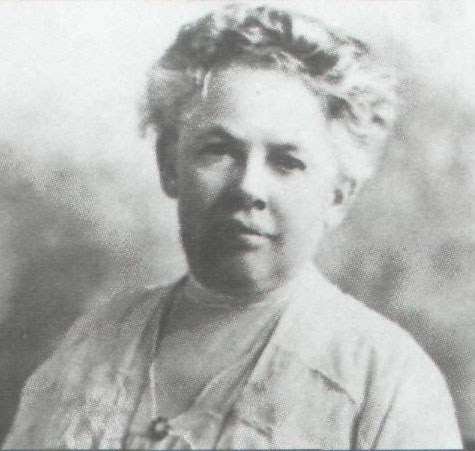 |
 |
|
(1857 - 1932) |
 |
| Mary
Lemist Titcomb, pioneer in county library systems and originator of
the Bookmobile, was born in Farmington, New Hampshire.
Titcomb first became interested in library work after reading about it in a church paper. Library schools had not been formed yet, so her professional training began as an apprentice in the Concord (Massachusetts) Public Library. She later became librarian of the public library in Rutland, Vermont and secretary of the first Vermont Library Commission. She arrived in Hagerstown, Maryland in 1902 after having worked as a library organizer in Vermont for 12 years. She plunged energetically and efficiently into organizing a library and held firmly to the belief that giving out books was but a small part of a library's purpose. The Washington County (Maryland) Free Library, which opened August 27, 1901, became the second working county library in the United States. Within two years, the library was operating 22 deposit stations outside of Hagerstown. In addition, books could be ordered through the stations from the main library. All services were provided for free. During the next five years, the system grew to 66 stations. Even though Titcomb's efforts were successful, she was concerned that the library was not reaching enough people. She believed that it was difficult for people living in isolated areas to go to a library and that many were not interested enough in books or aware of them to make the effort. Therefore, she believed that the library should go to them. From this theory, the plan for a book wagon originated. By 1904, the book wagon became a reality and the Washington County Free Library became the first library in the world to carry books directly to remote homes. In spite of Washington County's example, Maryland was slow in developing county libraries. It was not until the 1940's that the number of county libraries increased in Maryland. However, her idea did spread more quickly in other parts of the county. Titcomb was also a pioneer in the training of library personnel. As a result, the Washington County Free Library Training Class evolved in 1924 and continued until 1931. Though training classes were not unusual at the time, it was, however, unusual to find so small a library offering a curriculum comparable to that of the library schools. In the years since Titcomb died, old habits of work and thought have changed drastically. Professional training is now mandatory and getting books to readers who are unable to get them has become routine. Titcomb and her colleagues believed that a reading, thinking people was necessary to the country and must be sustained. This belief has become a major foundation of our country.
|